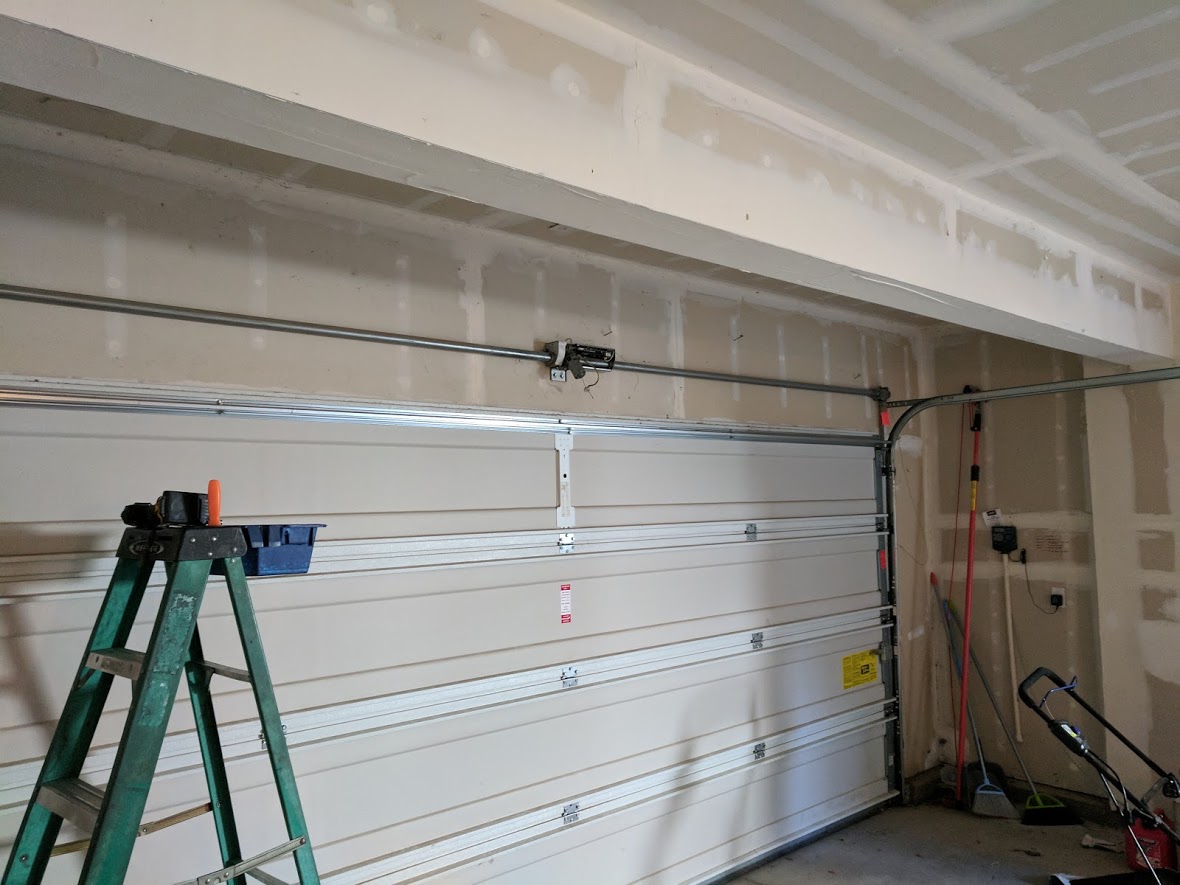
Garage conversions are an affordable way to increase your home's living space. They are practical and can add value to your home. Some restrictions are still in effect, but they are less stringent than they were years ago.
The rules and regulations in your local area will be important if you plan to convert your garage to a apartment. For example, you may need to obtain a permit from your local municipality, even if you're not planning to live in the new apartment. It is also important to think about how your new living space will fit in with your home's overall design.
A garage conversion is often the best way to add living spaces to your home. You need to think about the dimensions of your garage and the budget. Also, consider what you would like to do once the space is converted.

The floor leveling is an important aspect of garage conversions. A thin layer of concrete can be used to level the floor. Insulation is another important step. Fiberglass insulation can help reduce cooling costs.
Another important aspect of a garage conversion is plumbing. In some cases, you will need to install an up-flush system. An up-flush system uses a pump to carry waste to a septic tank. To save money, you can opt for a ductless system, which consists of a wall-mounted unit that draws its hot water from a condenser outside the building.
You should always look for the best way to construct your garage conversion. You might find it cheaper to add a circuit at the breaker box than to install a complete new electrical service. Consider the fact that you will need to run the sewer line from the garage to your main house.
California's housing market has been crowded for years. Therefore, state leaders have tried to find ways to make more high-quality homes. Many communities are looking for creative ways to make the most of the available space in their localities. They've also started to relax restrictions on ADUs and accessory dwelling units.

A garage conversion may be an option depending on your location. Although it's not always a cheap project, it can add as much as 15% to the value of your home. You can also increase the space you have in your current residence and save your yard space for other uses.
Converting your garage is not an easy task. However, it's well worth the effort. Not only will it add valuable living space to the home, but it can also be used to rent to potential tenants, friends or family.
FAQ
What should I do with my current cabinets?
It all depends on whether you are considering renting out your home or selling it. If you're planning to sell, you'll probably want to remove and refinish the cabinets. This gives buyers the illusion of brand-new cabinets and helps them visualize their kitchens after they have moved in.
However, if you want to rent your house, you should leave the cabinets alone. Many renters complain about the dishes that are dirty and the greasy fingerprints left by tenants.
You might also think about painting your cabinets to make them appear newer. It is important to use a high quality primer and paint. Low-quality primers and paints can crack easily.
How can I tell if my house needs a renovation or a remodel?
First, consider whether your home has been updated in recent times. A renovation may be a good idea if there have been no updates for several years. On the other hand, if your home looks brand-new, then you may want to think about a remodel.
You should also check the condition of your home. You should inspect your home for holes, peeling wallpaper, and broken tiles. If your home is in good condition, it might be worth considering a remodel.
Also, consider the general condition of your property. Is your house structurally sound? Do the rooms look good? Are the floors clean and tidy? These questions are important when deciding which type of renovation you should go through.
What would it cost for a home to be gutted versus what it would cost to build one?
A home's contents are removed, such as walls, floors, ceilings and plumbing. Gutting is done when you want to make some modifications before moving in. Because of the many items involved in gutting a house, it is usually very costly. The average cost to gut home ranges from $10,000 to $20,000, depending on your job.
Building a home means that a builder constructs a house piece by piece, then adds windows, doors, cabinets and countertops to it. This usually happens after you have purchased lots of lands. Building a home usually costs less than gutting and can cost between $15,000 and $30,000.
It really depends on your plans for the space. If you want to gut a home, you'll probably need to spend more because you'll be starting over. You don't need to take everything apart or redo everything if you are building a home. You can build it the way you want it instead of waiting for someone else to come in and tear everything up.
How much is it to renovate and gut a whole kitchen?
If you've been thinking about starting a renovation project for your home, you may wonder how much it would cost.
The average cost of a kitchen remodel between $10,000 and $15,000. There are many ways to save money and improve the overall feel of your kitchen.
Plan ahead to save money. This includes choosing a design style and color palette that fits your lifestyle and budget.
Hiring an experienced contractor is another way of cutting costs. Professional tradesmen are familiar with every step of construction, so they won't waste their time trying to figure it out.
It is best to decide whether you want to replace your appliances or keep them. Remodeling a kitchen can add thousands of pounds to its total cost.
Another option is to consider purchasing used appliances. You can save money by buying used appliances.
It is possible to save money when you shop around for materials, fixtures, and other items. Special events like Cyber Monday and Black Friday often offer discounts at many stores.
How long does it typically take to renovate a bathroom?
Remodeling a bathroom typically takes two weeks to finish. The size of your project will affect the time taken to remodel a bathroom. Some jobs, such installing a vanity and adding a shower stall, can take only a couple of days. Larger jobs like removing walls or installing tile floors and plumbing fixtures can take several hours.
The rule of thumb is that you should allow three days for each room. For example, if you have four bathrooms you would need twelve days.
How should you renovate a home?
First, the roof. The second, the plumbing. The third is the electrical wiring. Fourth, the walls. Fifth, the floors. Sixth, the Windows. Seventh, the doors. Eighth, the kitchen. Ninth, the bathroom. Tenth, the garage.
Once you've completed these steps, you can finally get to the attic.
It is possible to hire someone who knows how to renovate your house. Renovating your own house takes time, effort, and patience. And it will take money too. You don't need to put in the effort or pay the money.
Renovations aren’t always inexpensive, but they can make your life easier and save you money in the long term. Beautiful homes make life more enjoyable.
Statistics
- 55%Universal average cost: $38,813Additional home value: $22,475Return on investment: 58%Mid-range average cost: $24,424Additional home value: $14,671Return on investment: (rocketmortgage.com)
- About 33 percent of people report renovating their primary bedroom to increase livability and overall function. (rocketmortgage.com)
- Windows 3 – 4% Patio or backyard 2 – 5% (rocketmortgage.com)
- $320,976Additional home value: $152,996Return on investment: 48%Mid-range average cost: $156,741Additional home value: $85,672Return on investment: (rocketmortgage.com)
- Following the effects of COVID-19, homeowners spent 48% less on their renovation costs than before the pandemic 1 2 (rocketmortgage.com)
External Links
How To
Is a permit required for home renovation?
It is important to do the right thing when renovating your house. Every construction project that affects the exterior walls of your property requires building permits. This covers adding on, remodeling, or replacing windows.
There could be serious consequences if your decision to renovate your house without a building permit is made. If you are responsible for injuries sustained during the renovations, you could face penalties or even legal action.
It is required that all persons working on residential structures obtain a building permits before they start work. A majority of cities and counties require homeowners to obtain a building permit before beginning any construction project.
Building permits are usually issued by local government agencies like the city hall, county courthouse or town hall. You can also obtain them online or by calling.
A building permit is a must to ensure that your project meets local safety standards, fire codes and structural integrity regulations.
For instance, a building inspector will ensure that the structure meets current building code requirements, including proper ventilation, fire suppression systems, electrical wiring, plumbing, heating, air conditioning, and more.
In addition, inspectors will check to ensure that the planks used to construct the deck are strong enough to support the weight of whatever is placed upon them. Inspectors will look out for water damage, cracks and other issues that could affect the structure's stability.
Once the building permit is approved, contractors can proceed with the renovations. If the contractor does not obtain the required permits, they could be fined, or even arrested.